Hello everyone! After a long (not always hot) summer, we are pleased to be back with a catch up of all the summer news to get you ready for the exciting policy things we have to look forward to. Some of it was highlighted in the Secretary of State’s speech at the UUK conference this week (see more on this below). Back in May we did a horizon scan (here for BU readers) which covers most of it. A quick reminder of the things we have to look forward to:
- The two big bills: the Skills bill and the Freedom of Speech bill.
- Outcome of the PQA consultation run by the Department for Education – GW was not specific about when we can expect it, but it could be relatively soon. Questions still remain about the mechanism for change, as it’s not within the current remit of the OfS, and the plans they were consulting on couldn’t be implemented without a sector wide big bang approach. “Persuasion” would seem to be the most likely approach, with a threat of legislation if not. It’s controversial because universities have autonomy (at the moment) on admissions.
- On that point about autonomy, we can expect the response to Augar (finally) with the Comprehensive Spending Review, which is now planned for 27th And strong hints from GW that minimum entry requirements will be part of that. Billed as a way of controlling the spiralling cost of the student loan book, they can actually implement that one despite the autonomy thing, by saying that it’s fine, they just won’t fund student loans for those who don’t meet the requirements. Although headline grabbing, it is unlikely to make a huge difference to actual student numbers across the UK. And of course it will be challenged as a retrograde step for social mobility and levelling up.
- So while we’re talking about social mobility, GW had things to say about that too, using had some dodgy data on outcomes to remind us that he believes that the growth in student numbers is supported by recruitment onto low quality courses that just shouldn’t be allowed. The current OfS consultation on licence condition relating to quality is part 1 of two, the second consultation due in the Autumn will be about absolute minimum baseline standards. Taken together, these changes to the regulatory framework are very significant, not just in the implications for potential future funding arrangements but also in terms of the internal quality assurance and governance implications.
- And linked to all that, we are also expecting a consultation on a new TEF framework in the Autumn.
You must have missed all this? No?
Freedom of Speech Bill
Evidence on the HE Freedom of Speech Bill was heard in Parliament as part of the Committee Stage consideration of the Bill. This is a controversial Bill partly because the sector claims there isn’t a significant problem and commonly-cited example are either misrepresentations or overstate the problem. Also, in practice, implementation of the legislation will be very difficult given the scope for conflicts with other bits of legislation. One person’s legitimate protest might be seen as an attack on another person’s right to speak freely, just as one person’s expression of free speech can be experienced by another person as a hateful attack linked to identity. Where the lines will fall and who will draw them will be extremely controversial.
If you are interested in some of the thorny difficulties do read Research Professional’s coverage of this week’s sessions here, and this article features an academic who is in favour of the Bill.
There was also a separate parliamentary exchange on freedom of speech – content followed the Government’s favoured lines.
One of the witnesses presenting evidence to Parliament was Smita Jamdar, Partner and Head of Education at a law firm. She has written a short and informative blog calmly highlighting the drawbacks and limitations of the Bill. It is worth a read. Snippets:
- If there is a dispute whether speech is or isn’t ‘within the law’ how can a body like the OfS judge that? That is and should be a matter for the courts. Interestingly, in the US, when the Trump administration proposed withholding funding from institutions that did not protect the constitutional right to free speech, it ultimately concluded that there would need to be a court decision that the constitutional right had been infringed before a regulatory or funding body could impose a penalty.
- …the new Director of Freedom of Speech and Academic Freedom… [should] be able to demonstrate impartiality…At the moment it will be an appointment of the secretary of state. There should be more safeguards around the appointment process.
- The bill defines free speech as the freedom to express views without ‘adverse consequences’, and this is both practically and philosophically absurd to try to enforce by legislation. We cannot legislate human nature, so while universities can facilitate free speech, they cannot and should not police people’s reactions to it, except to the extent that those reactions breach expected standards of conduct.
- I think all they [universities] can do is ensure they facilitate the right to speak and to act where anything is done that constitutes a breach of its disciplinary codes. They cannot be responsible for as abstract a concept as ‘adverse consequences’.
Spending Review, Fees & Student Loan rates
On Tuesday the Chancellor launched the 2021 Spending Review (SR21), which will conclude on 27 October 2021 alongside an Autumn Budget. The three-year review will set UK government departments’ resource and capital budgets for 2022-23 to 2024-25 and the devolved administrations’ block grants. Here’s the letter.
The Spending Review is significant for the HE sector as we are awaiting the official Government response to the Augar Review, particularly on which elements might be adopted. Since the report Augar has distanced himself from the fee cuts which made all the headlines, however, the Government is looking to reduce the cost of funding HE and student loans in particular, as well as seeking to refocus its contribution towards its national priorities.
As this parliamentary question highlights changes may come in a number of forms including changing the terms of student loans retrospectively. Wonkhe have a blog – Will Westminster ministers dare to lower the student loan repayment threshold after a week of concern about the tax rates facing graduates? Jim Dickinson reads the runes. As mentioned above, requiring a minimum level of prior achievement to qualify for a student loan has also been on the cards since GW dragged it out of the back of the Augar report in January. Having a GCSE in English may be part of that after stories of a scandalous approach to grammar and spelling in university assessments hit the headlines earlier this year – that has found its way into the OfS quality regime now as well.
If you enjoy the speculation around the Budget you may like to read this Resolution Foundation briefing note which explores the Chancellor’s choices ahead of the autumn spending review.
Returning to student loans, Universities Minister Michelle Donelan, has issued a written ministerial statement announcing a temporary reduction in the (Plan 2 & postgraduate) maximum student loan interest rate due to the recent decline in the prevailing market rate for comparable unsecured personal loans. The maximum Post-2012 undergraduate income contingent repayment student loan interest rate and the postgraduate income contingent repayment student loan interest rate will be 4.1% between 1 October and 31 December. From 1 January 2022, the Post-2012 undergraduate and postgraduate income contingent repayment student loan interest rates will revert to the standard rate +3%. Further caps may be put in place should the prevailing market rate continue to be below student loan interest rates. More details in the DfE press release.
Meanwhile the House of Commons Library have published one of their lovely briefings on undergraduate student finance.
If your work interests cover student loans you’ll probably want to take in the full paper. He’s a teaser on living costs:
How much do students spend on living costs?
The 2021 Student Money Survey from Save the Student found that:
- On average, students across the UK spent £810 per month on living costs. Just over half of this figure was spent on rent.
- Spending was below average in Scotland (£781 per month), Wales (£800), and Northern Ireland (£756). Within England costs varied from £751 per month in the North West to £896 in London.
- 66% of students worked part-time to help fund their education. This is lower than in previous surveys due to the pandemic’s impact on businesses.
- 65% of students received a maintenance loan, 38% received some form of grant scholarship or bursary.
- 66% of students received some support from their parents. On average this was worth £121 per month.
- 76% worried about making ends meet, 60% said their maintenance loan was not large enough, and 43% said they had not been made aware of the full range of funding options available to them such as scholarships, grants, and bursaries.
Research
Open Access. UKRI published its long-awaited Open Access Policy, determining which route to publication the funder will support with its £8 billion annual budget. Under the new rules, any UKRI-funded articles submitted for publication after 1 April 2022 will need to be made openly available with immediate effect on publication. The policy is not without controversy. The announcement follows a two-year consultation period with institutions, researchers and publishers—some of whom have criticised the plan, citing worries about profits and freedom for researchers to publish in their venue of choice. It also includes a new requirement for monographs, book chapters and edited collections published from 1 January 2024 to be made open access within 12 months of publication. UKRI will provide increased funding of up to £46.7m per annum to support the implementation of the policy.
For peer-reviewed research articles, key requirements of the new policy include:
- immediate open access for research articles submitted for publication on or after 1 April 2022
- either via the version of record in a journal or publishing platform, or by depositing the authors accepted manuscript (or if permitted by the publisher the version of record) in an institutional or subject repository
- CC BY licence and CC BY ND by exception, including a requirement to notify publisher of licensing at the point of submission.
Key requirements of the new policy for monographs published on or after 1 January 2024 include:
- the final version of a publications or accepted manuscript being made open access via a publisher’s website, platform or repository, within a maximum of 12 months of publication
- CC BY licence preferred, but NC and ND licences are permitted.
To support successful implementation of the policy UKRI will work with the sector to put in place supporting interventions, including:
- substantially increasing UKRI funding support for open access in recognition that this is required to meet the new policy intent and the extension of our policy to long-form outputs
- dedicated funding to Jisc in support of sector open access negotiations, with guidance and infrastructure to aid the up-take of UKRI compliant open access options
- continuing our work to support culture change around publication, in that research should be recognised for its intrinsic merit rather than where it has been published.
R&D Spend. The Office for National Statistics published the annual estimates of research and development performed and funded by business enterprise, higher education, government, UK Research & Innovation and private non-profit organisations:
- Expenditure on research and development (R&D) that was performed in the UK rose by £1.3 billion (3.4%) to £38.5 billion in 2019; but this was the lowest percentage growth since 2013.
- The largest components of R&D expenditure were the business sector at £25.9 billion (67% of the UK total), followed by the higher education sector at £9.1 billion (24%).
- Total R&D expenditure represented 1.74% of gross domestic product (GDP) in 2019; the long-term trend has been for very small growth over time with the value up from 1.59% in 2008 and 1.72% in 2018.
- Funding of UK R&D from overseas increased by 4.1% to £5.6 billion in 2019 compared with 2018; this was 0.8% higher than the peak in 2014 of £5.5 billion.
- The UK spent £577 per head of population on R&D in 2019; this is up from £561 in 2018.
ODA. Universities UK International (UUKi) published the findings from their ODA survey 2021 which set out to understand the impact of ODA R&D funding on UK universities and how the UK can continue to use ODA R&D with developing countries in support of the UN SDGs and UK strategic priorities. Recommendations:
- There must continue to be significant public funding available for research on global challenges as defined by the UN SDG framework in partnership with LMIC partners, whether as part of the ODA budget or the R&D budget
- ODA-funded R&D schemes such as GCRF and Newton have helped UK HEIs to engage with global challenges and create partnerships with researchers and institutions in LMICs.
- Universities and their partners want to continue working to address global challenges. The source of funding is less important than the activity which it supports.
- Funding for research programmes, once confirmed by a UK funder, must be guaranteed for the life of the project to ensure that legal commitments are met.
- Policy and funding stability are critical to developing long-term, sustainable and impactful research partnerships.
- The impact of mid-project grant terminations or cuts on LMIC partners is acute. The UK’s reputation as a trusted partner is severely undermined by such actions.
- Future global challenges funding should include dedicated support for universities to build LMIC partnerships through mobility and other career development opportunities, laying the foundations for successful projects further down the line.
- Universities have benefitted from a flexible funding mechanism (GCRF QR/institutional/block awards) which has allowed them to build fruitful partnerships through pump-priming and career development activity.
- These types of activities are a key part of research and development but are now at risk. Funders should consider how these activities will be supported in future allocations.
- Equitable partnerships should remain a core principle of any future funding for global challenges.
- LMIC partners should not be overburdened by administrative requirements.
Quick News
- The Government announced in injection of £113 million for the UKRI Future Leaders Fellowships scheme, in total the Future Leaders scheme is promised £900 million over a 3-year period. Science Minister Amanda Solloway: Supported by £113 million, the Future Leaders Fellowships will equip our most inventive scientists and researchers across the country with the tools to develop and bring their innovations to market quickly – all while helping to secure the UK’s status as a global science superpower.
- Wonkhe blog: Alternative metrics that better reflect the attributes of good-quality research are needed.
- The Regulatory Horizons Council has published a new report on the future of technological innovations and how regulation can act as an enabler. The paper evaluates the future socio-economic context in which technological innovations will be delivered from 2021-30. The results are based on a series of interviews with experts focused on engineering and energy, health and life sciences, and digital data and cyber technologies.
- UKRI announced support for 200 doctoral students to work on pressing research challenges with UK businesses through a £24 million investment. The studentships are through ICASE – Industrial Co-operative Awards in Science and Technology.
- Researcher organisation Vitae, supported by UKRI, has published their latest survey results on the impact of the pandemic on researchers and research activities. Familiar themes emerge – poor mental health, increased bullying and Covid caring responsibilities and shielding had a big negative impact, but regaining the commute time and unexpected opportunities were positives. It also questioned the perception of researchers on their future careers:
- 24% predicted a very negative impact of COVID-19 on their career prospects (this rises to 34% of postgraduate researchers and 28% of research staff)
- 60% predicted a negative impact or a very negative impact on their career prospects. This rises to 65% for those with child-caring responsibilities and 62% for female researchers.
UKRI say: One of the key action points highlighted in this survey is for UKRI to drive ahead with our work to improve research culture. We will continue to work collaboratively to promote and support an inclusive, respectful and safe working culture, including through our ongoing implementation of the recently launched People and Culture Strategy.
- Innovate UK funding competition winners for 2021 by combined authority area.
Williamson speaks…
Gavin Williamson, Secretary of State for Education, spoke at the UUK annual conference this week. Below are the key points, none of which are new news, although chilling in terms of tone. The content was as per the Research Professional predictions.
There has been relentless parodying of GW on twitter and in the press after he spoke about the importance of face to face contact – through a video link. Wonkhe have entertaining coverage of the speech. Post-event Research Professional’s short write up was cynically entertaining too.
Quality:
- We need to recognise that just sending kids with low academic achievement into universities isn’t going to magically change them into highly mobile graduates – indeed, it’s more likely to lead them to failure and poor outcomes. And that there is no substitute for the hard grind of driving up standards.
- Quality is what will deliver a meaningful qualification that offers the right skills and preparation for a working life. And quality is what will justify the huge investment that students are making to study. But quality covers more than teaching. Quality extends to the value of the degree. You represent the best of the best but to keep that reputation for excellence, you must be vigilant in showing that the degrees awarded to students are a reliable indicator of academic achievement.
- Students and employers need to know that a degree means something. And not all degrees are created equal. There have been too many instances where pockets of low quality have undermined the teaching or value for money that students and taxpayers rightly expect.
- …It is so disappointing to see some in the field of higher education cling to the myth that the quality of a course or degree makes no difference to a student’s outcomes. While it may be comforting for some institutions, what it is actually saying is that they don’t believe in education.
Back to campus:
- I think all of us would agree that every student is entitled to expect a high-quality, rich learning experience. As they plan their futures, they will be asking themselves how best they can get it… The [Student Academic Experience Survey] survey shows that in-person teaching is now one of the top three areas singled out for improvement by students. This is something we cannot ignore. While the switch to online teaching was a necessary and vital way of keeping young people learning in as safe a way as possible, we have now moved on and students quite rightly expect that they can study in person alongside other students
- …What I do want to make clear is that I do not expect to see online learning used as a cost-cutting measure. If there’s a genuine benefit to using technology, then it should be done – and Sir Michael Barber’s Digital Teaching and Learning Review sets out some of the opportunities. But that is not an excuse to not also deliver high quality face-to-face teaching…And let’s face it, in this new era of choice students don’t have to settle for poor value.
Admissions: The last two years have emphasised the importance of delivering on our plans for PQA – not only to stabilise the system but to empower students to have the very best opportunities to succeed. That is why I am determined to accelerate our plans to bring forward this important reform
Access & Participation:
Working with schools is still in favour, higher level technical provision remains a goal – disappointing that Williamson links it with a statement on disadvantage (i.e. it’s for other peoples’ children), and are SpLD students to be further disadvantaged? Note alternatives such as assistive technology are not mentioned by Williamson.
- …we will shortly be appointing a new Director of Fair Access and Participation…. I’d like to see our access regime re-centred on the principles of equality of opportunity and high standards, and to see higher education providers working in partnership with schools to drive up attainment.
A confusing bit on technical education:
- I believe more universities should be more willing to carve out expertise in more technical fields, excelling on a different set of axes to those used by the traditional league tables. Too often, this can be interpreted as meaning ‘everyone must have prizes’, or that all universities and courses are equal. This is not what I mean: Professor David Phoenix’s Social Mobility Index demonstrates that some universities, such as my old university of Bradford, Aston and Imperial College and others, perform particularly strongly at transforming students from disadvantaged backgrounds into highly employable graduates. A real-world focus is not about lowering aspirations, but achieving excellence through a focus on STEM, applied research, close links with employers and a ruthless focus on employability.
- Lowering the bar for certain groups of students serves no one. It is patronising to expect less from some students under the guise of supporting them. Effective academic writing requires good spelling, punctuation and grammar from every student.
Wonkhe on Access:
- Millward is leaving, and will shortly be replaced by someone that DfE appoints who Williamson is confident will: [From the speech]“See our access regime re-centred on the principles of equality of opportunity and high standards, and to see higher education providers working in partnership with schools to drive up attainment.”
- That’s code for ‘less equality of outcomes, please’ – handy if your access outcomes would be affected by OfS causing the shuttering of some provision based on the where the baseline is – and to drive home the point, he also said this about subjects with a proceed figure of under 50%: [From the speech]“Students recruited on to such courses should not be able to be counted against a university’s access targets for access.” That’s actually a pretty significant statement. We all know that some subjects ‘carry the weight’ on access in some universities – and it’s long been argued that it’s bizarre that OfS doesn’t publish APP data at subject level by provider, a problem if you’re trying to understand social mobility in medicine or law or whatever. Looks like that will shortly change.
Wonkhe correcting the line on apprenticeships –
- Williamson’s speech was largely a collection of the government’s greatest hits…and repeats of dodgy lines like this one on apprenticeships: “Five years after completion, the average Higher Apprentice earns more than the average graduate.”
- That that’s a stat skewed by a very small number of high level apprenticeships in “leadership” that are primarily taken by people already in well-paid jobs – something in other speeches he’s appeared keen to put a stop to – was not mentioned.
- And confusingly we got both “we need to do something for the 50% that don’t go to university” and “we need to change the choices of many that do”. Young people deserve to have choices, but only ones approved by DfE. Who is it that the government’s reform agenda is designed to address again?
Research Professional weren’t impressed with Williamson: The rest of the speech bordered on incomprehension and mutual contradiction as the education secretary said that “sending kids with low educational attainment to university will not turn them into high-flying graduates” before going on to praise David Phoenix’s social mobility index, which demonstrates precisely the ways in which universities turn disadvantaged entrants with poor results on paper into [checks notes] “high-flying graduates”.
Culture wars:
- Yet too often, some universities seem more interested in pursuing a divisive agenda involving cancelling national heroes, debating about statues, anonymous reporting schemes for so-called micro-aggressions and politicising their curricula. Vice-chancellors who allow these initiatives to take place in their name must understand that they do nothing but undermine public confidence, widen divisions, and damage the sector.
- I call on you to help bring our nation together, instead of driving our nation apart. Rather than manufacturing offences from the past, let us instead come together to tackle injustice and promote equality for the students and staff on today.
University spending: The Augar review concluded that the amount spent on teaching seemed low, while around £1,000 was spent per student on corporate activities and around £500 per student on marketing…I remained concerned that the sector isn’t doing enough to shift more of its income towards direct activity that improves learning outcomes or vital services like mental health support, and less on its own administration…As recipients of tens of billions of pounds of public money, universities have a duty to be careful stewards of taxpayers’ money. Our world reputation is built on the confidence we have in our academics, in their passion, their drive and their commitment to the pursuit of knowledge. We need to free them to do what they do best.
Also covered in the full speech: Lifelong loans, short course funding, something confusing about “modules”, antisemitism.
Rethinking HE
Education think tank EDSK published Value-able lessons. Here’s a teaser-
- The debate over ‘low value’ HE has reached a stalemate. Numerous government ministers both past and present and the independent review of post-18 education…have criticised universities for delivering degree courses that do not offer sufficient ‘value’ – primarily in the form of higher graduate salaries and better employment prospects.
- … The level of outstanding student loan debt was an eye-watering £161 billion at the end of 2019/20 and is set to grow by £15-20 billion every year for the foreseeable future. It is no wonder, then, that the Government is keen to reduce the cost to taxpayers of the Higher Education (HE) system, which is why bearing down on supposedly ‘low value’ courses is a tempting proposition.
- … it is difficult to see how an HE institution (HEI) can confidently identify, let alone reduce, the provision of ‘low value’ courses if they are not privy to how ‘value’ is being defined. This may explain why HEIs have largely dismissed the accusations of ‘low value’ degrees while also questioning the metrics and approaches being employed to justify such criticism. In doing so, the HE sector has inadvertently given the impression that they are keener to defend the status quo than they are to put forward any alternative solutions to the Government’s financial predicament.
- … the ‘value’ of an institution or course is ultimately a subjective judgement
- … Neither the HE sector nor the Government are blameless in the debate over ‘low value’. The sector has been quick to criticise the Government’s stance on ‘low value’ courses and institutions without offering alternative solutions. At the same time, the Government has focused too much on what it doesn’t want from HE without explaining what it does want instead. If the Government continues to rail against ‘low value’ HE without describing a clear vision for what a ‘high value’ sector looks like, there can be few complaints from ministers if universities continue down their present path. What’s more, the notion that politicians and civil servants can judge the ‘value’ of any course or institution across the country based on little more than graduate salaries, employment outcomes or drop-out rates is not a tenable proposition from either a policy or statistical perspective. The DfE and OfS should acknowledge that the subjectivity surrounding the concept of ‘value’ is precisely why they must allow the choices of students, employers and other stakeholders to drive out ‘low value’ HE rather than trying to intervene themselves.
If you’ve read this far you’ll probably feel this all seems quite reasonable. Click here and scroll down to a succinct version of Recommendations – they certainly suggest a shake up of the HE sector.
Admissions
Record high numbers of students were accepted for undergraduate full time programmes in 2021-22 – UCAS: This means 37.9% of the entire UK 18 year old population is due to start a full-time undergraduate course, also a new high and surpassing last year’s equivalent figure of 36.4%. The number of disadvantaged students accepted has increased from 22.6% in 2020 to 23.5% in 2021. EU students numbers continue to plummet while non-EU international student numbers are up 5%. Less students (34% less) were placed through Clearing likely because record high grades meant more students were confirmed for their first choice programme. Overall, across all ages and domiciles the volume of students accepted is slightly down (less than 2%) on 2020 – however, Clearing remains open and final figures will be announced before Christmas.
UCAS have updated their interactive stats dashboards with the new data, and if you prefer words to hard numbers there is also a blog from UCAS’ Head of Data on Wonkhe.
Exam results – Education Select Committee (held 7 September)
Schools minister, Nick Gibb, was question by the Education Select Committee about the 2020-21 grade inflation. The Committee Chair asked if the Department was responsible for the widespread grade inflation and wanted to know what the driving factors were. Gibb responded that they were talking about a teacher assessed system, with very clear quality assurance processes in place. They had a lot of long conversations with stakeholders to get the best system that they could for their assessments. Gibb added that all exam results were backed up by the evidence that teachers had produced. He thought that teachers were the best people to estimate what grades their students should get.
On the gender based attainment gap in the exam results Gibb stated they were taking any attainment gap seriously and addressing it. The reasons for the differences were peculiar to this year and last year and were not an attainment trend. Gibb said that he did not think that it was right to draw wider conclusions about the education policies in place based on this attainment gap between boys and girls.
On private versus state education Gibb was questioned whether the grades actually represented the gap between the independent and state sector because of the differential learning loss that happened. Gibb responded that the independent sector was largely selective and was getting very high grades in general. The percentage increase actually showed trends that were existent even pre-pandemic. Gibb finished by saying that they had always tried, through reforms, to make the state sector competitive with the independent one and the gap between the two was narrowing each year before the pandemic.
On future exam results a Committee member asked what process was in place to balance fairness for future cohorts and maintain assessment standards.
Ian Bauckham (Interim Chair of Ofqual) stated that the decisions for 2022 would be slightly different than those taken for 2021. There were a range of risks and considerations that they would take into account, including the significant rise in high grades that they had seen in previous years, as well as fairness towards students. Bauckman ensured the Committee that they would reach a view that balanced all their interests and was cognisant of the risks involved while also being fair. It was stated that decisions on the 2022 exam system would be publicised in October. With a consultation to be launched imminently on what information would need to be gathered in the event that in-person exams cannot go ahead in 022. Gibb stated that his view was to assume exams would go ahead but to also prepare for the worst. Information on current appeals (relating 2021 results) will be published in December. The Chair asked if the grade inflation for 2021/22 would be compared to that in 2019 or that in 2020/2021. Gibb replied that this was a very technical and difficult decision that they would make public in October.
In Education Questions this week Nick Gibb stated the grading system would remain the same and that rumours of A** grades were just rumours.
Exam Results
Statistics from the DfE on A-level results day showed that:
- Comparison of grades between this year and last year showed no notable changes in historic disparities between groups of students and types of school; 88.4% of grades are A* to C at A level, compared to 87.8% in 2020.
- There was a 15.8% increase relative to last year in the proportion of grades at A and A* in academies, compared with 15.2% in independent schools. That represents a 5.7pp increase in the proportion of grades at A and A* from last year in academies, compared with a 9.3ppt increase in independent schools.
- In real terms, this means there are 1.21 times more A and A* grades in academies, compared to 1.17 times more A and A* grades in independent schools, in 2021 compared to 2020.
- Maths remains the most popular subject at A level with a 3.8% increase in entries this year;
- 4% increase in STEM subjects, with 1.9% more girls taking A levels in Maths and 8.3% more in Physics, building on significant progress in this area since 2010.
- Over 340,000 certificates awarded to a wide range of students who have undertaken Level 3 vocational and technical qualifications, with results broadly similar to previous years.
Access and Participation
Research Professional report on the IPPO review – details below.
- The coronavirus pandemic has caused widespread disruption to universities’ widening participation initiatives, according to a report commissioned by the Department for Education.
- A “rapid evidence review” carried out by the International Public Policy Observatory, a collaboration between think tanks and universities, found that Black, Asian and minority ethnic school leavers and those from lower socioeconomic groups had achieved lower grades in 2020, after changes to exams caused by the pandemic, than their benchmark cohort in 2016.
- Working-class school leavers were also more likely, as a result of the pandemic, to be rethinking their plans to attend university, while the training of teachers and healthcare workers has been particularly badly hit by education closures.
- The study, undertaken after a recommendation by the Scientific Advisory Group for Emergencies, is one of four evidence reviews relating to the pandemic’s impact on different levels of education.
- It suggests that mentoring, plus financial incentives and support with university entrance applications, could help mitigate some of the negative effects on students from disadvantaged backgrounds.
You will also be interested in the potential changes ahead for Access and Participation mentioned in Gavin Williamson’s speech above.
Parliamentary Question – what steps he is taking to ensure students from low socio-economic backgrounds can progress to university following the removal of BTEC courses.
International
Parliamentary Questions: International Student vaccinations; International students quarantine hardship: International students facing significant financial hardship as a result of the requirement to quarantine in a managed quarantine facility can apply for hardship arrangements, including deferred payment plans. In exceptional circumstances reductions and waivers may be granted. We will continue to keep our hardship policy under review.
International students were also mentioned several times in this short Q and A debate. Minister Williamson side stepped the questions on quarantine and hardship.
International student recruitment: Why aren’t we second? Part 2: UUK International (UUKi) published analysis stating that UK universities are losing ground in the race for international students because of high costs, visa difficulties and limited marketing in the face of rising competition from other countries. The report makes a series of recommendations for cementing the UK’s global popularity as a study destination and achieving the UK government’s ambitions for international student number growth. UUKi say the analysis draws on in-depth research and focus group interviews with prospective students, alumni, and recruitment agents in eight recruitment markets in three categories: where the UK should maintain its position (Nigeria, Saudi Arabia), regain its standing (India, Pakistan) and develop its recruitment (Brazil, Indonesia, South Korea, Vietnam).
The study reveals that students consider cost effectiveness, return on investment and career options when choosing a study destination abroad. The factors influencing their decision most include affordability (especially scholarship availability), post-study work opportunities, welcome and safety, and the quality of education.
The costs and benefits of International student to the UK economy: HEPI published a major international student report along with Universities UK International (UUKi) this week updating their previous in-depth analysis. Dods summarise the report:
Every part of the UK is financially better off – on average by £390 per person – because of international students. The research finds that just one year’s intake of incoming international students is worth £28.8 billion to the UK economy.
Economic benefits
- The tuition fee income generated by international students studying in the UK, as well as the knock-on (or ‘indirect’ and ‘induced’) effects throughout the UK economy associated with UK universities’ spending of this international fee income on staff, goods, and services;
- The income associated with the non-tuition fee (i.e. living cost) expenditure of international students, and the subsequent knock-on effects of this expenditure throughout the wider economy (i.e. the indirect and induced effects); and
- The income associated with the spending of friends and family visiting international students whilst studying in the UK. Again, this expenditure leads to subsequent knock-on (indirect and induced) effects throughout the UK economy.
Public costs
- The teaching grant costs incurred by the Office for Students, the Higher Education Funding Council for Wales, the Scottish Funding Council, and the Department for the Economy for Northern Ireland to fund higher education institutions’ provision of teaching and learning activities (for EU students only);
- The costs associated with the tuition fee support (through loans and/or grants) provided to EU students studying across the home nations; and
- The costs associated with the provision of other public services to international students or their dependants. This includes the costs associated with public healthcare (net of the NHS Immigration Health Surcharge); housing and community amenities; primary and secondary-level education received by dependent children; social security; public order and safety; defence; economic affairs; recreation and culture; environmental protection, and other general public services. We also include the costs associated with ‘non-identifiable’ public expenditure incurred by the UK Exchequer on behalf of the UK as a whole (e.g. expenditure relating to the servicing of the national debt), as well as expenditure on overseas activities (e.g. diplomatic activities etc.). This approach underestimates the economic benefits and overstates the economic costs associated with hosting international students in the UK. As such, the estimates of the net economic impact and the benefit to cost ratios should be considered at the lower end of the plausible range.
Soft Power: HEPI also published their annual Soft-Power Index for 2021 considering the impact of world leaders who were educated in countries other than their own.
Student Mobility: Turing
The Government has published which institutions will receive funds under the new Turing Scheme for 20212/22:
- 363 projects funded (out of 412 applications)
- At a total fund cost of £96,215,683
- For 40,032 placements
- 8% of the placements are for participants from disadvantaged backgrounds
Student Voices
Wonkhe have been listening to the incoming Student Union Officers across the country and have an interesting new blog highlighting 7 similarities in the Officers’ manifestos and concerns. They suggest it clues the sector in on key concerns for the current student body. The blog is worth a read and here are the 7 factors to watch out for in short form:
- Focus on diversity.
- Volume of complaints.
- Access to people and things on a “course”.
- Consistent standards/fairness – “how is it allowed or tolerated that one module leader can return your email in a week and another six – and nobody even says sorry”. Also there’s renewed interest in the courses that subsidise other courses.
- Done to/authoritarianism – the lack of a plan or any meaningful monitoring behind big policy issues at many universities. “I asked what the actual plan was to close the gap and I was told to discuss that ‘offline’” and “the target is two weeks but they never publish the data” are the sorts of comments that have come up with fascinating regularity.
- Students as activist consumers – It is about people responding to emails, tackling pockets of manifestly poor teaching and reducing wait times to see mental health triage. This is the most interested in education – its regulation, its economics and the system that underpins its delivery – I can ever remember SU officers being. Increasingly, it feels more and more like they want students to be treated like humans in a mass higher education system – which will need more than pockets of goodwill and a policy review, and much faster feedback cycles than the NSS.
- Deep concern over learning loss, grade inflation and mental health – proactive clubs, reaching out, early identification and academic and mental health support
Meanwhile HEPI have a collection of essays – What is the student voice? Thirteen essays on how to listen to students and how to act on what they say. It includes:
- Students as governors: walking the tightrope and shouting into the void
- What do students think and how do universities find out?
- Disabled students: the experts we forget we need
- Using surveys to represent the student voice and demonstrate the quality of the experience
- The virtuous loop: capturing the student voice through course and module evaluation
- The student voice at the heart of the system (but only when they’re thinking what we’re thinking)
- The Office for Students’ Student Panel in their own words
- The importance of the NUS for representing the voices of students
- Restoring the real student voice
- Students’ voices in curriculum design
- The student voice and accommodation
- Mature students: a silent or a silenced voice?
- International students in the UK – perspectives put in context
Parliamentary Questions
- Ethnicity degree outcome gap
- Antisemitism – Adoption of the IHRA definition is only a first step, and while the government considers that adoption of the definition is crucial, it is not enough on its own. That is why I will continue to work with the sector to ensure it better understands antisemitism and does more to end it.
- Students not benefiting from the 30 hours free childcare provision because not classified as working.
Inquiries and Consultations
Click here to view the updated inquiries and consultation tracker. Email us on policy@bournemouth.ac.uk if you’d like to contribute to any of the current consultations.
There have been a myriad of new consultations and inquiries over the summer. The above document contains only those relevant to general HE matters. Academic colleagues will likely wish to peruse the wider list of specialist consultations and inquiries that may be relevant to their research interests. This is shared each week through the policy influence digest. Contact us if you are not a subscriber but wish to access this list.
Other news
Online learning: Wonkhe report – Two-thirds of students rated their experiences with online learning positively, but only a third felt that universities were listening to their concerns. That’s according to Jisc’s annual student digital experience insight survey, which found that just over half (51 per cent) of students received support in their transition to digital learning. With a majority of students reporting barriers such as poor wifi connection and a lack of specialist software, Jisc calls on universities to better support students through digital infrastructure and online-specific course design.
Inclusion & academic confidence: The UPP Foundation Student Futures Commission published their interim report – read the key points in this Wonkhe blog which set out priorities for supporting student success post-Covid.
Complaints: The Office of the Independent Adjudicator for Higher Education (OIA) published their third set of case studies outlining complaints about changes to course delivery and assessments, accommodation, and disciplinary action arising from the impact of the coronavirus pandemic. It includes examples where the HE provider has agreed to settle the student’s complaint because of the OIA’s decision in a similar case.
Nursing: Nursing workforce (very short) debate in Parliament (Lords) on 8 September.
Cyber security: Wonkhe blog – Offering flexible working conditions to skilled IT professionals could mean the difference between flunking and surviving a cyber-attack, says John Chapman.
NSS: Wonkhe – The Office for Students has published data for its key performance measure 10, which tracks the proportion of students who responded positively to the National Student Survey question on overall satisfaction. This number dropped 7.4 percentage points compared to the 2019-20 academic year, reaching an all-time low of 74.9 per cent. OfS says it is “working on a target for this measure”.
Subscribe!
To subscribe to the weekly policy update simply email policy@bournemouth.ac.uk. A BU email address is required to subscribe.
External readers: Thank you to our external readers who enjoy our policy updates. Not all our content is accessible to external readers, but you can continue to read our updates which omit the restricted content on the policy pages of the BU Research Blog – here’s the link.
Did you know? You can catch up on previous versions of the policy update on BU’s intranet pages here. Some links require access to a BU account- BU staff not able to click through to an external link should contact eresourceshelp@bournemouth.ac.uk for further assistance.
JANE FORSTER | SARAH CARTER
VC’s Policy Advisor Policy & Public Affairs Officer
Follow: @PolicyBU on Twitter | policy@bournemouth.ac.uk
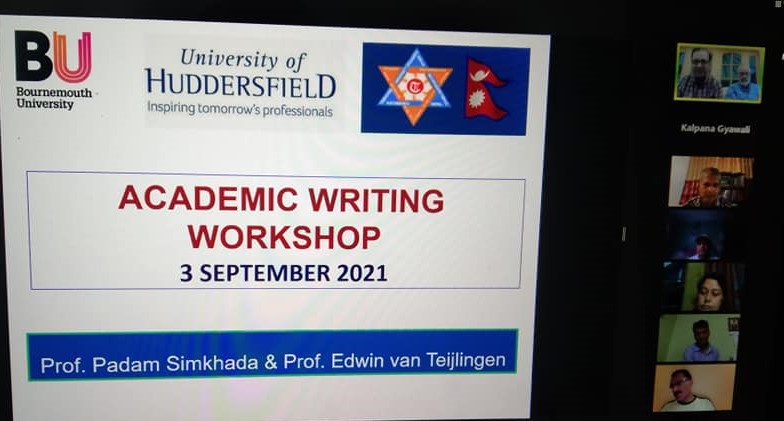




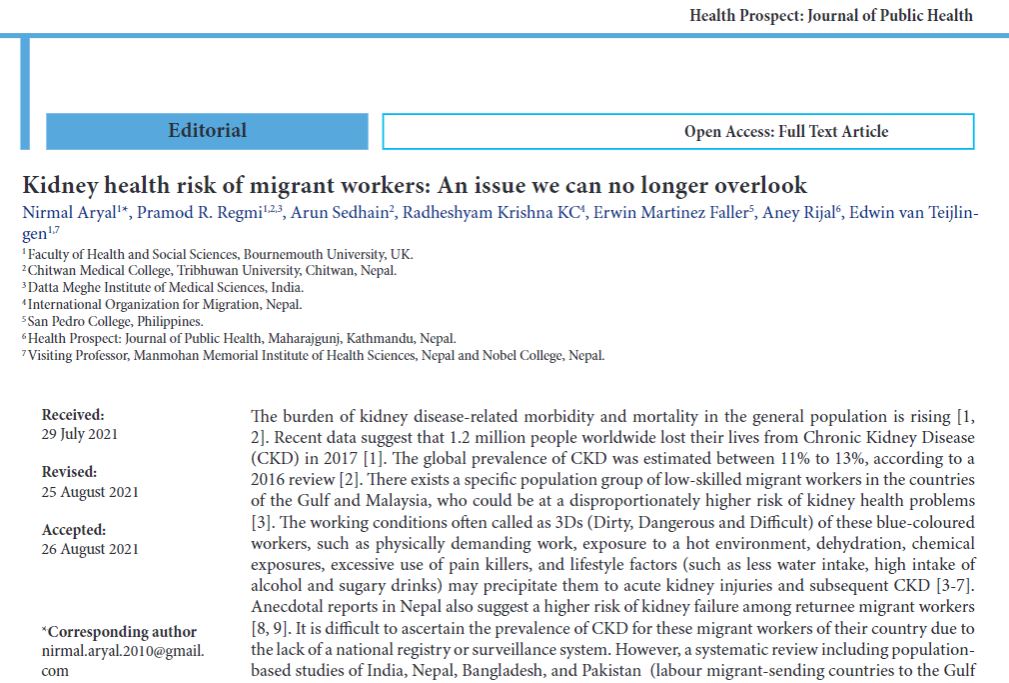


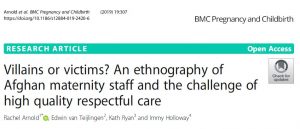

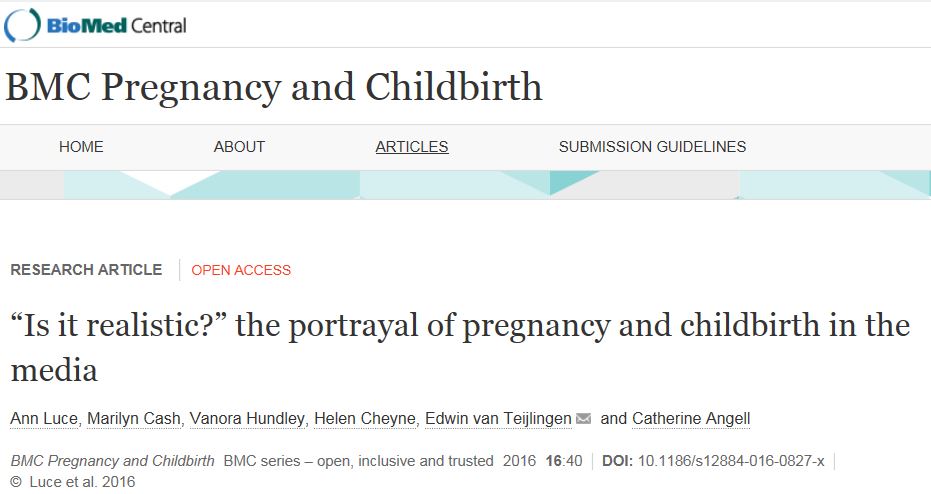


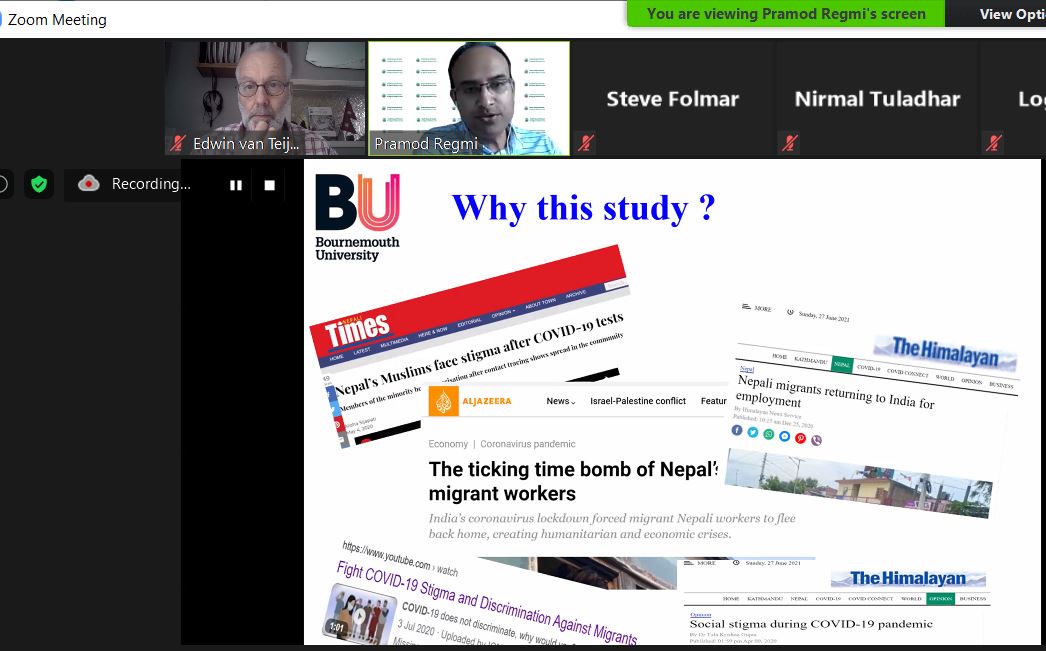
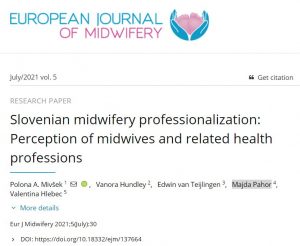


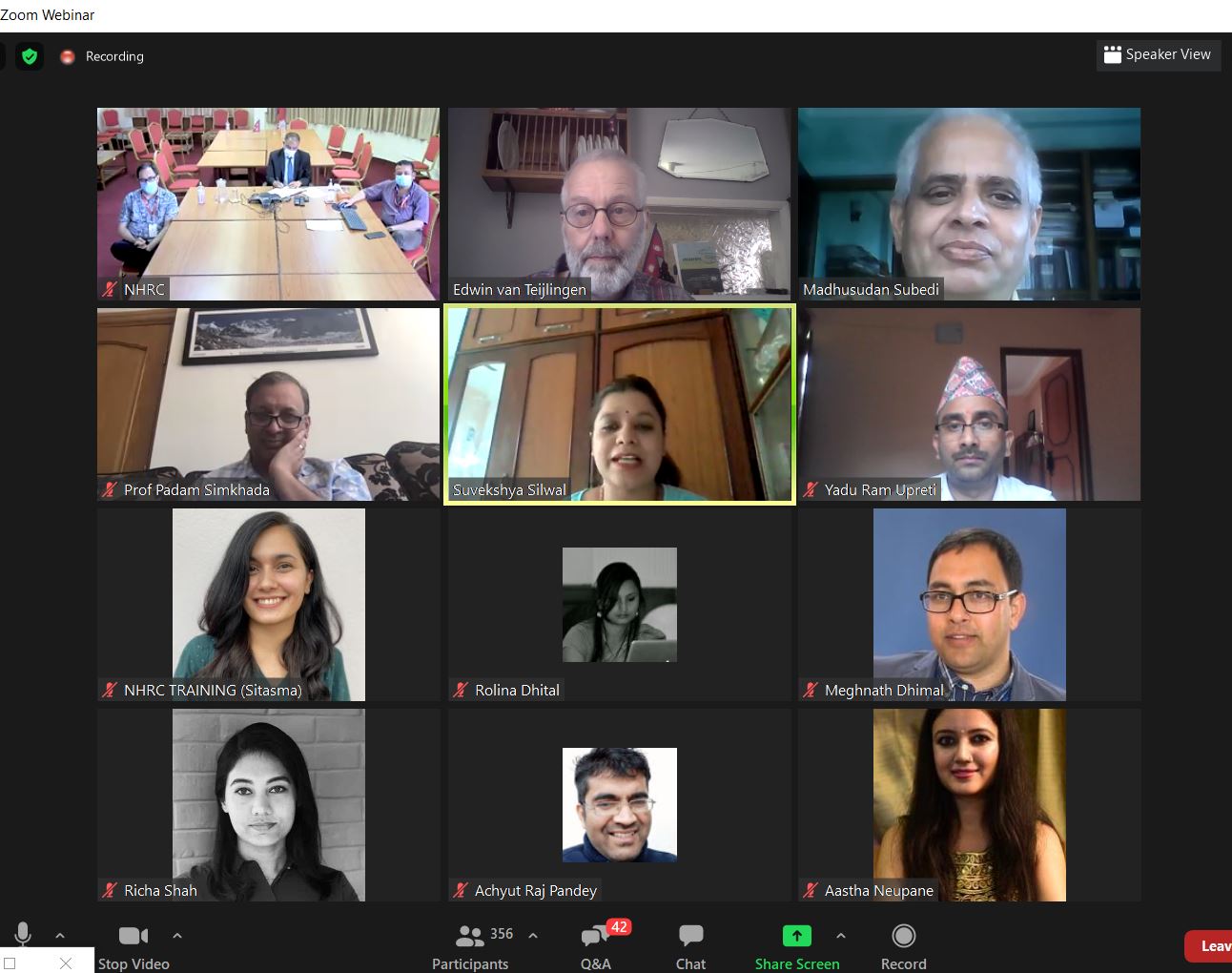

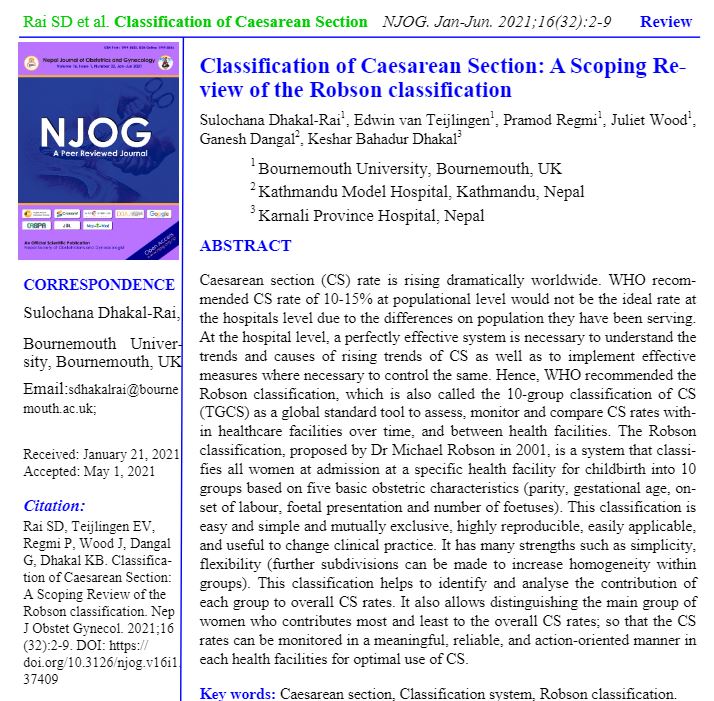

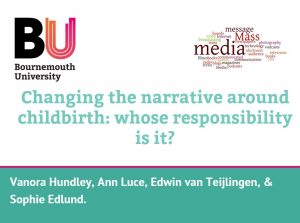

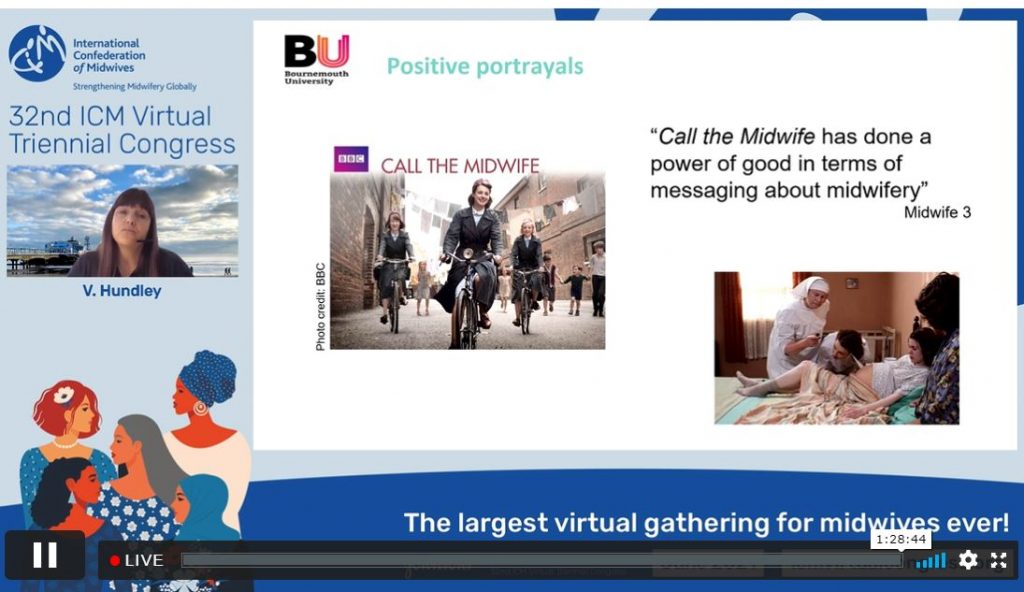











 SPROUT: From Sustainable Research to Sustainable Research Lives
SPROUT: From Sustainable Research to Sustainable Research Lives BRIAN upgrade and new look
BRIAN upgrade and new look Seeing the fruits of your labour in Bangladesh
Seeing the fruits of your labour in Bangladesh Exploring Embodied Research: Body Map Storytelling Workshop & Research Seminar
Exploring Embodied Research: Body Map Storytelling Workshop & Research Seminar Marking a Milestone: The Swash Channel Wreck Book Launch
Marking a Milestone: The Swash Channel Wreck Book Launch ECR Funding Open Call: Research Culture & Community Grant – Application Deadline Friday 12 December
ECR Funding Open Call: Research Culture & Community Grant – Application Deadline Friday 12 December MSCA Postdoctoral Fellowships 2025 Call
MSCA Postdoctoral Fellowships 2025 Call ERC Advanced Grant 2025 Webinar
ERC Advanced Grant 2025 Webinar Update on UKRO services
Update on UKRO services European research project exploring use of ‘virtual twins’ to better manage metabolic associated fatty liver disease
European research project exploring use of ‘virtual twins’ to better manage metabolic associated fatty liver disease